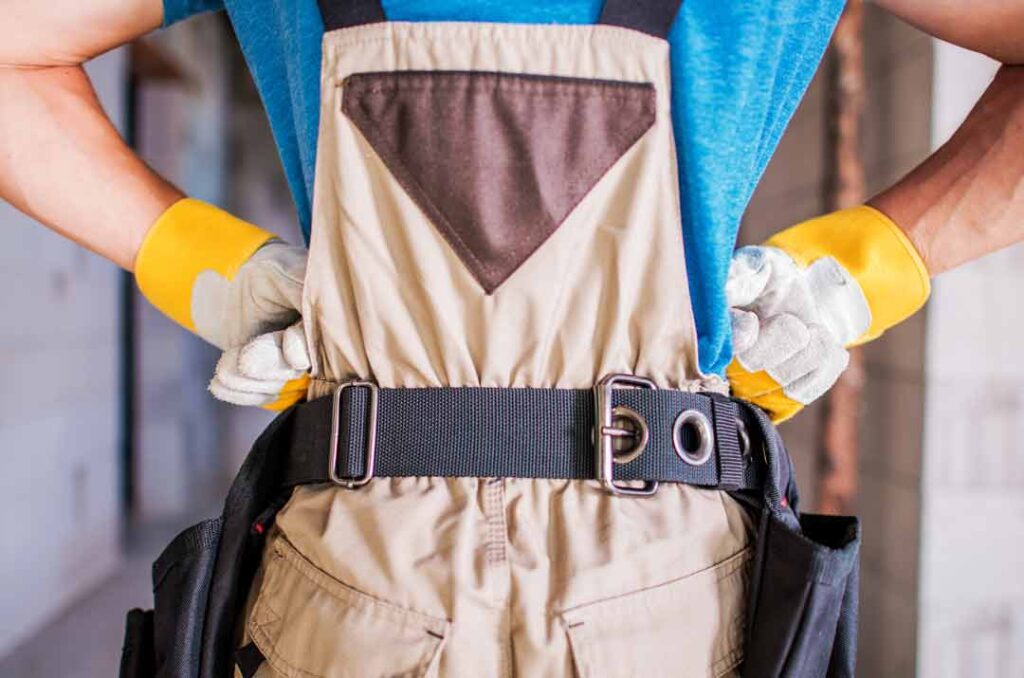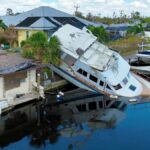In the aftermath of a hurricane, there are a lot of things to worry about. Dealing with storm damage, filing insurance claims, and finding a temporary place to live are just a few of the issues you may be faced with. Unfortunately, there are also people who will try to take advantage of your situation by scamming you.
This can include anything from fake charities to contractors who are not authorized to do work. It is important to be aware of these scams and take steps to protect yourself and your family.
Here are some common hurricane scams and what you can do to avoid them.
Assignment of Benefits
One of the most common scams in the aftermath of a hurricane is the Assignment of Benefits scam. This is when a contractor or other service provider offers to do work on your behalf in exchange for you signing over your insurance benefits to them. They may promise to get the work done quickly or for a lower price than other providers, but in reality, they are just looking to get their hands on your money. If you are contacted by someone offering to do work on your property, make sure you get everything in writing and do not sign anything until you have spoken with your insurance company.
FEMA Scams
One of the most common scams in the aftermath of a hurricane is someone pretending to be from FEMA. They may contact you by phone, email, or even show up at your door claiming to be doing damage assessments or offering assistance with filing your insurance claim.
They may ask for personal information such as your Social Security number or banking information. Do not give out any personal information to anyone claiming to be from FEMA unless you are absolutely certain that they are who they say they are.
The best way to do this is to ask for identification and then call FEMA’s disaster fraud hotline at (800) 621-3362 to verify that the person is legitimate.
Charity Scams
In the wake of a hurricane, there will be many people and organizations seeking donations for relief efforts. Unfortunately, some of these charity scams will be set up by con artists looking to make a quick buck.
You can avoid becoming a victim of one of these scams by doing your research before making any donations. Make sure you know exactly where your money is going and how it will be used.
A good rule of thumb is to donate to established charities that you have heard of rather than giving money to someone who approaches you on the street or comes to your door. There have been a number of cases where people have pretended to be in need in order to scam donors. As a result, it is always best to research a crowdfunding campaign before giving any money. If possible, try to donate to campaigns that are run by people you know or charities that have established histories. By taking these precautions, you can help ensure that your donation goes to the people who need it the most.
Door-to-door Scams
If you have storm damage, there’s a good chance that someone will show up at your door offering repairs or clean-up services. While there are many legitimate businesses that offer these services, there are also scammers who will take your money without doing any work or do shoddy work and then demand more money for repairs. To avoid becoming a victim of one of these scams, get quotes from multiple businesses before hiring anyone and pay by credit card so that you can dispute any charges if necessary.
Construction Involving Fees in Advance
After a hurricane, you may need to hire a contractor to do repairs on your home or business. Unfortunately, there are scam artists who will pose as contractors and try to get you to pay fees in advance for work that they never end up doing. To avoid becoming a victim of one of these scams, make sure that you only hire reputable contractors who have been properly licensed and insured.
When you’re looking for a contractor, there are a few red flags to watch out for.
- People who contact you out of the blue without being asked usually aren’t legitimate.
- An out-of-state contractor is often someone who is just looking to scam people.
- No pickup/work truck is another sign that the person is not legitimate.
- No professional indicators such as a shirt, business card, or vehicle signage are another sign that the person is not legitimate.
So if you see any of these red flags, it’s best to just walk away and find someone else to do the job.

Debris Removal Service Scams
In the aftermath of a hurricane, there will be a lot of debris left behind. While many municipalities offer free debris removal services, there are also scam artists who will charge you for this service. To avoid becoming a victim of one of these scams, only use debris removal services that are offered by your municipality or that have been approved by your municipality.
Housing Scams
If you’re displaced by a hurricane, you may be looking for temporary housing. Unfortunately, there are scam artists who will take advantage of people in this situation.
One scam is when someone rents out a property but then doesn’t actually own it or have the authority to rent it out.
Another scam is when someone charges exorbitant prices for substandard housing.
To avoid becoming a victim of one of these scams, make sure you only deal with reputable companies and individuals when looking for housing. You should also never sign anything until you’ve had a chance to inspect the property and make sure that it meets your needs.
When Should You Contact the Police About Scams?
If you get a call, text, or email from someone you think is a fraudster, the best thing to do is to hang up or delete the message. If you haven’t given them any information, then you’re safe and there’s no need to do anything else. However, if you have given them sensitive information, you need to contact your local police right away so you can file a report. By doing this, you can help prevent other people from becoming victims of fraud.
In this case, it’s best to NOT call 9-1-1 but to call your local police station’s non-emergency phone number instead.
If you are visited in person by someone you think might be a scammer, try to get as much information about them as possible. This can include what they look like, the name of the company they claim to represent, and a description of their vehicle. If it’s safe to do so, call the police and report the incident.
In the case that you have someone in or around your house, dialing 9-1-1 is appropriate. The officers on patrol in the area might be able to find the person and either verify that they’re legitimate or stop them from doing any more fraud. Don’t hesitate to call for help if you feel like you’re in danger.
The aftermath of a hurricane is stressful enough without having to worry about being scammed. By being aware of some of the most common scams and taking precautions, you can help ensure that you don’t become a victim. If you think you may have been scammed, contact the police immediately so they can investigate.








